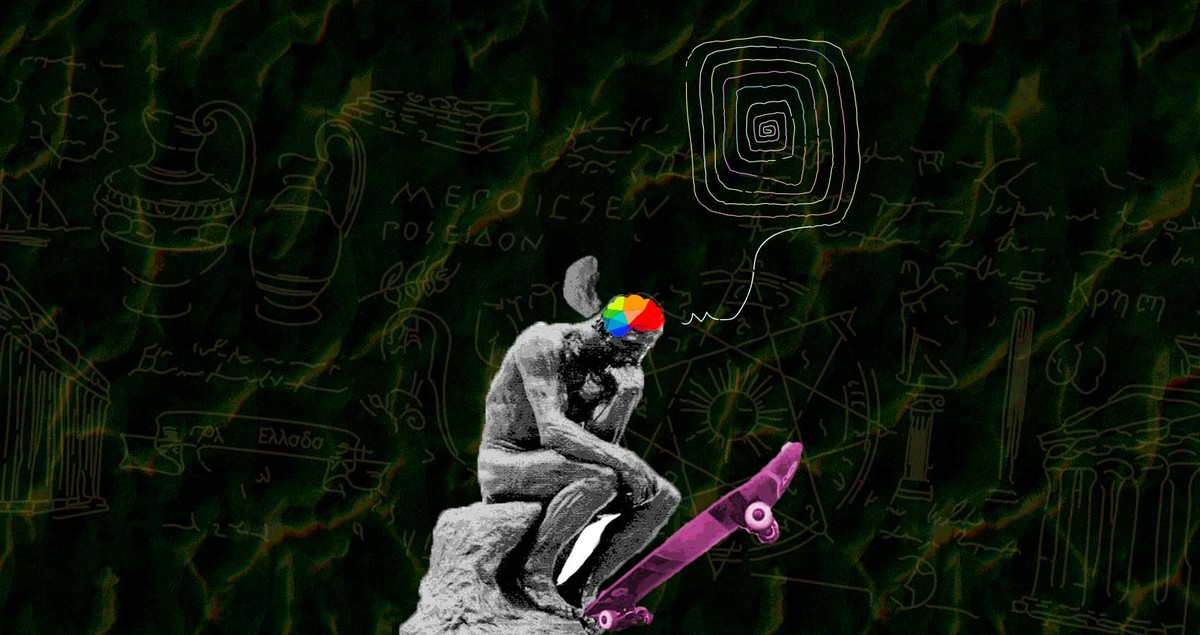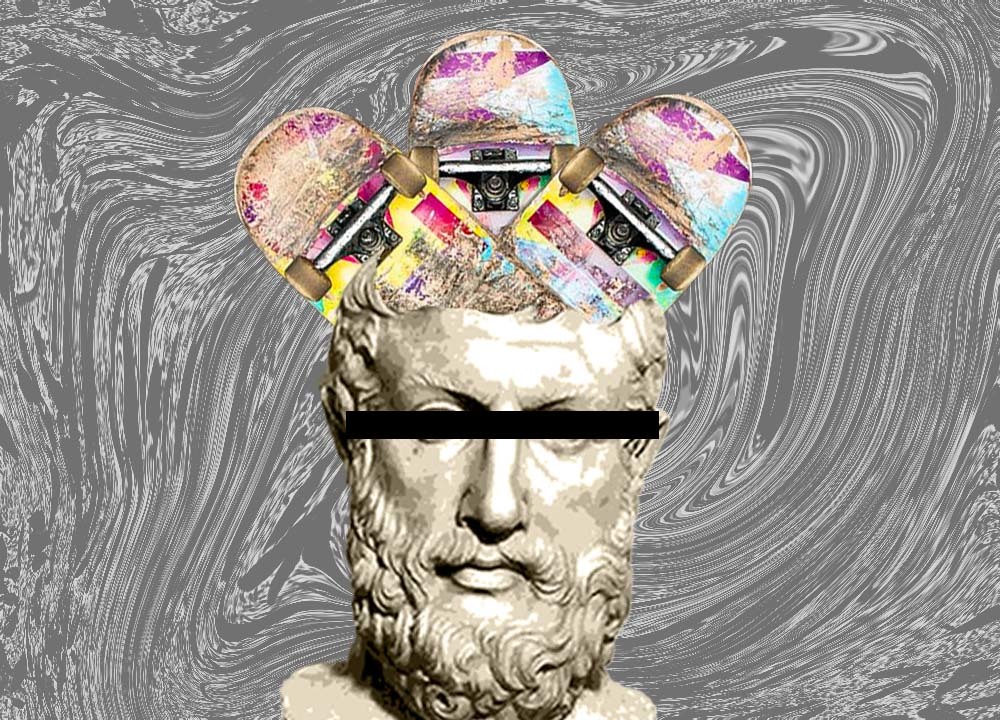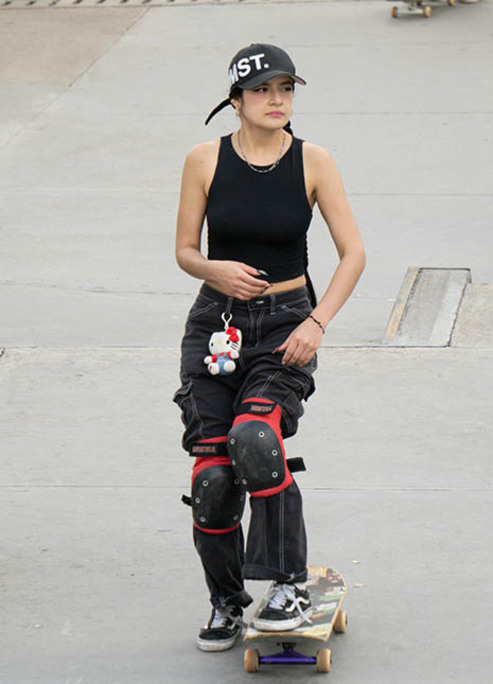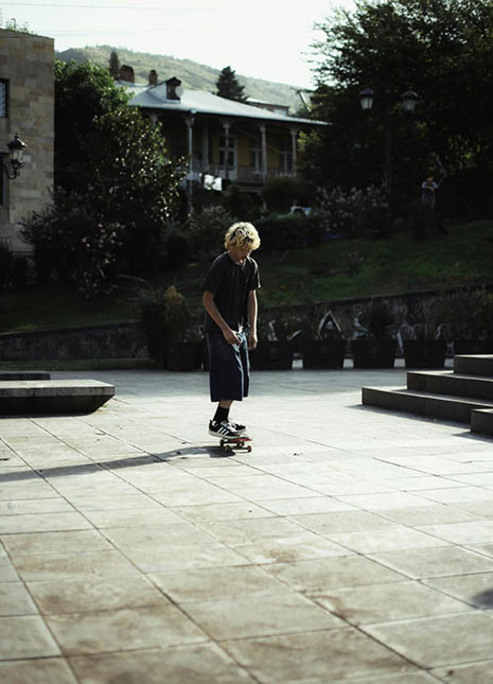
The Philosophical Dimensions of Skateboarding
The philosophy of skateboarding not only sounds cool, but has merit when linked to the powerful messages of our philosophical masters. With something that requires discipline, fun, and freedom of expression, what can we take from skateboarding that we can apply to our everyday lives?
Seeking Peace and Happiness
A philosophical view of the world and the human condition is to strive for what brings peace and happiness. This pursuit is vital to our existence, and our understanding of these things can be found by understanding skateboarding. The most common answer for why people skate is simple; to have fun. This quest is virtuous and was written about thousands of years ago by the ancient Greeks. Aristotle talked about the importance of hobbies and ‘meaningless’ fun to not only get the most out of life but also to become a better person. Could skateboarding give us the moral co-ordinates to navigate life? Many of the ancient greeks philosophers thought so - before skateboarding even existed.
Individual Identity and Self-Awareness
Modern philosophers have developed this further: Hegel explored the idea and developed the view that not only does fun contribute to a healthy, happy life, but also that enjoyable activities (like skating) allow the individual to develop an awareness of who they truly are. Nietzsche wrote on this as well in his theory of loving life, adding to it the importance of life-affirming activities—ones that not only bring enjoyment but also purpose, a quest for continued learning.
Unity in Diversity
Tony Hawk gives this as the reason why he skates, which makes sense because the culture that surrounds skateboarding is a perfect fit for this philosophical viewpoint. By bringing people together but also developing the need for individual expression, the possibilities of a wooden board with 4 wheels are endless, and as skaters, we are forever learning and forever in the pursuit of thrill and fun.

Harmony through Discipline and Courage
Skateboarding takes discipline, balance, courage, and pain. Mark Gonzales defines skateboarding as the great karma stick in his underlying philosophy. With good karma, you're going to have the best time, but if your karma is bad, you're going to 'eat shit.' The philosophy of martial arts in Buddhism and Eastern ideologies has commented on this for centuries.
Embracing Pain and Achieving Enlightenment
The conceptual principle of karma refers to the idea that an individual's deeds can either lead to purity and benefit or punishment and consequence. The skateboarding army is reflected in the way of the Samurai—with spiritual clarity and physical discipline comes mastery. With good karma comes balance; too much speed, not enough force, you're going to stack it. Skateboarding has rejected the extremes and found the sweet spot in the middle, becoming a physical interpretation of the Taoist approach to life.
Don't get me wrong; every skater knows pain is necessary—not just as a rite of passage, but as something even the best skaters experience. The gnarly wounds are what make the world of skateboarding go around. plays skate fail compilation. Skateboarders and monks alike know the value that comes with pain. It has been said that physical pain cannot only expand one's consciousness but may eventually lead to a glimpse at enlightenment.
The philosophical theory behind this explains how pain takes full awareness, shifting your focus completely toward the present moment. Spiking adrenaline and activating your natural subconscious instincts, the courage it takes to overcome pain or the fear of pain helps you reach a natural state of chill on the other side.
Transcending Consciousness
This void-like state creates another bond between skateboarding and philosophy. Jeff Grosso describes himself as being there but being absent, acting purely as a 'channel' in his love letters to skateboarding. This idea is referenced by Carl Jung in his analysis of activating the subconscious mind and is the basis of Michael Singer's book "The Untethered Soul." The philosophy of having an empty conscious mind is not new and goes back to yogi traditions of ego death.
Separating oneself from the voice inside your head creates a peaceful void in which you're able to react without thought. A way to explain this is the 'real dog' vs. 'computer dog' analogy. Our conscious mind is like a supercomputer, but it can never equate the natural state of our subconscious. For skating, you need the same thing—a clear, calm mind relying entirely on your instincts. Many skaters say their void while doing a trick and only come back once they landed to realize how sick it was.
Defiance and Liberation
Other skaters say they skate to say 'fuck you.' Skateboarding's misfit culture relies heavily on a nihilistic diaspora. An unshakeable discipline towards rejecting social norms—an ideal that's dealt with in Italo Calvino's philosophical fiction. To abandon society as an individual quest is inherently righteous. This detachment theory has been explored and studied across the globe as a noble pursuit to escape suffering and lead to happiness. Combine that with demolition theories and our natural urge to tear shit apart—skateboarding ticks all the boxes.
So stay tuned, skaters & philosophers, as we continue throughout this series to drop into the profound philosophy of skateboarding.






